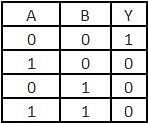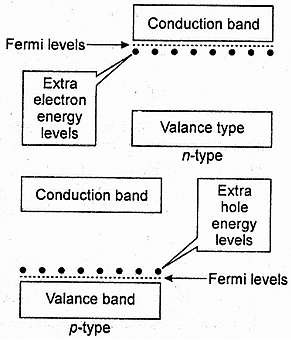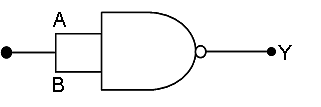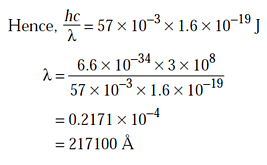CUET Humanities Exam > CUET Humanities Tests > Agriculture Practice Tests: CUET Preparation > Test: Electronic Devices - 1 - CUET Humanities MCQ
Test: Electronic Devices - 1 - CUET Humanities MCQ
Test Description
10 Questions MCQ Test Agriculture Practice Tests: CUET Preparation - Test: Electronic Devices - 1
Test: Electronic Devices - 1 for CUET Humanities 2024 is part of Agriculture Practice Tests: CUET Preparation preparation. The Test: Electronic Devices - 1 questions and answers have been
prepared according to the CUET Humanities exam syllabus.The Test: Electronic Devices - 1 MCQs are made for CUET Humanities 2024 Exam. Find important
definitions, questions, notes, meanings, examples, exercises, MCQs and online tests for Test: Electronic Devices - 1 below.
Solutions of Test: Electronic Devices - 1 questions in English are available as part of our Agriculture Practice Tests: CUET Preparation for CUET Humanities & Test: Electronic Devices - 1 solutions in
Hindi for Agriculture Practice Tests: CUET Preparation course. Download more important topics, notes, lectures and mock
test series for CUET Humanities Exam by signing up for free. Attempt Test: Electronic Devices - 1 | 10 questions in 10 minutes | Mock test for CUET Humanities preparation | Free important questions MCQ to study Agriculture Practice Tests: CUET Preparation for CUET Humanities Exam | Download free PDF with solutions
Detailed Solution for Test: Electronic Devices - 1 - Question 1
Test: Electronic Devices - 1 - Question 2
The energy gap between a valence band and a conduction band of a semiconductor is
Detailed Solution for Test: Electronic Devices - 1 - Question 2
| 1 Crore+ students have signed up on EduRev. Have you? Download the App |
Detailed Solution for Test: Electronic Devices - 1 - Question 3
Test: Electronic Devices - 1 - Question 4
Which of the following statements is true for an n-type semiconductor?
Detailed Solution for Test: Electronic Devices - 1 - Question 4
Test: Electronic Devices - 1 - Question 5
When the voltage between collector and emitter in a transistor is kept constant, a change of 8.3 mA in the emitter current changes the collector current by 8.2 mA. The value of the forward current ratio is
Detailed Solution for Test: Electronic Devices - 1 - Question 5
Detailed Solution for Test: Electronic Devices - 1 - Question 6
Test: Electronic Devices - 1 - Question 7
If the forward voltage in a diode increases, the width of the depletion region
Detailed Solution for Test: Electronic Devices - 1 - Question 7
Test: Electronic Devices - 1 - Question 8
A p-type semiconductor has acceptor levels 57 meV above the valence band. The wavelength of light required to create a hole is
Detailed Solution for Test: Electronic Devices - 1 - Question 8
Test: Electronic Devices - 1 - Question 9
Directions: The following question has four choices, out of which ONLY ONE is correct.
A truth table is given below:

Q. Which of the following options is correct?
Detailed Solution for Test: Electronic Devices - 1 - Question 9
Detailed Solution for Test: Electronic Devices - 1 - Question 10
Information about Test: Electronic Devices - 1 Page
In this test you can find the Exam questions for Test: Electronic Devices - 1 solved & explained in the simplest way possible.
Besides giving Questions and answers for Test: Electronic Devices - 1, EduRev gives you an ample number of Online tests for practice
Download as PDF























